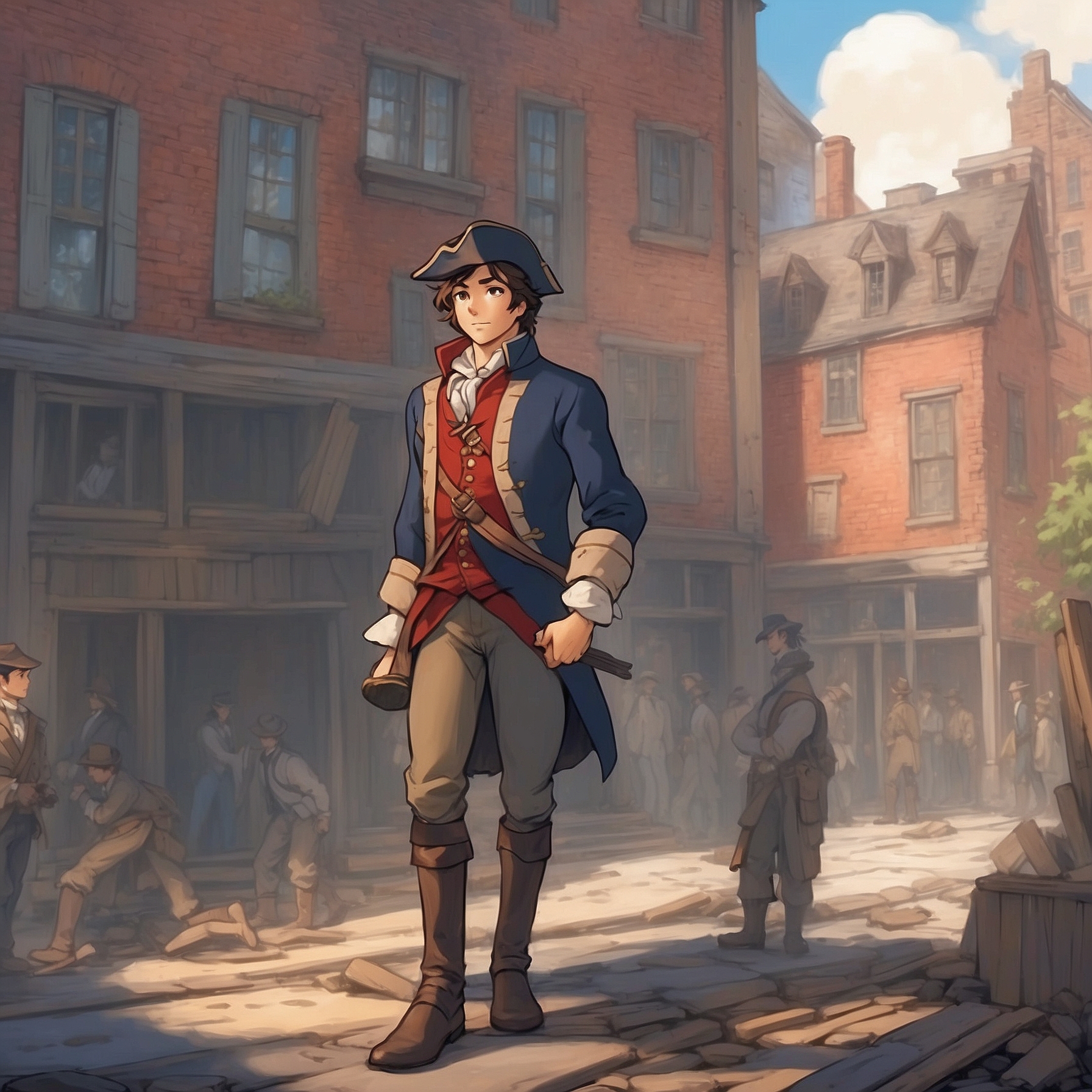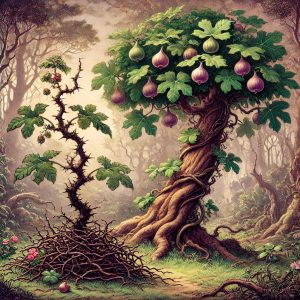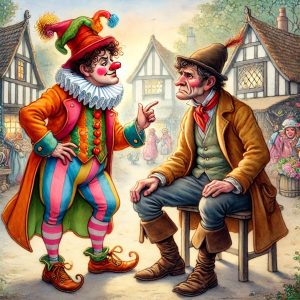
Introducing Johnny Tremain
Once upon a time, in a bustling city called Boston, there lived a young lad named Johnny Tremain. He was an apprentice silversmith, learning to craft beautiful silver pieces that sparkled in the sunlight. Johnny’s days were filled with melting, pouring, and shaping silver, dreaming of the day he’d become a master craftsman. Little did he know, adventure was just around the corner, waiting to sweep him off his feet.
The Bustling Streets of Boston
Boston was alive with the sound of hooves on cobblestones and the chatter of townsfolk. Johnny, on errands for his master, would weave through crowded marketplaces, filled with stalls of fresh fruits, fragrant flowers, and handcrafted goods. He’d exchange smiles and greetings with bakers, candlestick makers, and fellow apprentices. Each person he met added a stroke to the vibrant canvas of his daily life.
The Tension in the Air
But beneath the city’s lively surface, a storm was brewing. Whispers of discontent rustled through the streets like a chilling breeze. The colonists spoke of the Intolerable Acts with furrowed brows, their spirits weighed down by unfair laws imposed by a distant king. Johnny could feel the change in the wind, sensing that life in Boston was about to take an unexpected turn.
The Silver Disaster
One fateful day, while Johnny was working on a particularly intricate piece of silver, disaster struck. His hand slipped, spilling molten silver onto the workbench and ruining the nearly finished piece. This accident not only destroyed weeks of hard work but also severely burned Johnny’s hand, ending his promising career as a silversmith.
In the midst of his despair, Johnny met Paul Revere, a well-known silversmith and a fervent patriot. Revere saw potential in Johnny, beyond his abilities with silver. He offered words of encouragement, suggesting that perhaps Johnny’s talents could serve a greater cause. This meeting marked the beginning of Johnny’s involvement in the revolutionary activities brewing in Boston.
The Ride to Lexington
Not long after his accident, Johnny found himself embroiled in the events leading up to the historic Battle of Lexington. Assigned by Revere to carry messages to the Sons of Liberty, Johnny rode through the night, navigating dark, dangerous roads to deliver urgent news of British troop movements.
Throughout his ride, Johnny encountered various historical figures, each playing their part in the unfolding drama of the revolution. These encounters filled Johnny with a sense of purpose and belonging. He realized that, although he could no longer work as a silversmith, he could still contribute significantly to the cause of liberty.
The Battle and Its Aftermath
As dawn broke on April 19, 1775, the Battle of Lexington commenced, marking the beginning of the Revolutionary War. Johnny, hidden on the outskirts of the battlefield, watched as minutemen and British soldiers clashed in a chaotic exchange of gunfire. The sights and sounds of battle were overwhelming, instilling in Johnny a profound sense of the realities and costs of war.
After the battle, Johnny roamed the field, helping to tend to the wounded and bearing witness to the aftermath of the conflict. This experience solidified his resolve to continue supporting the revolutionary cause, despite the personal risks involved.
A Newfound Sense of Purpose
After the dust settled from the battle, Johnny found himself standing at a crossroads. With his apprenticeship as a silversmith behind him, thanks to his injured hand, he felt a stirring deep within. This wasn’t about silver or crafts anymore; this was about something bigger. Johnny decided right there and then, with the smell of gunpowder still faint in the air, that he’d join the cause. Not with a hammer and anvil, but with messages and missions, becoming a messenger for the revolutionaries.
Training as a messenger was no walk in the park. Johnny had to learn the lay of the land, memorizing secret routes and safe houses throughout Boston and beyond. He spent days and nights running, riding, and sometimes sneaking from one meeting to the next. Each message carried, each whispered word of news, felt like he was weaving himself deeper into the fabric of the revolution. Johnny was no longer just a boy; he was a patriot.
The Dangers of Revolution
Life as a revolutionary messenger was fraught with peril. British soldiers, now more vigilant than ever, patrolled the streets and countryside, eyes peeled for any sign of rebellion. Johnny had some close calls, ducking into alleyways and hiding in barns, heart pounding as redcoats passed by, mere inches away.
One evening, under the cloak of darkness, Johnny witnessed the harsh reality of their struggle. John Lilley, a fellow patriot, was caught by the British and executed without a trial. Standing among the shadows, Johnny watched in horror as the life of a man dedicated to freedom was snuffed out. This event not only seared itself into his memory, a grim reminder of the stakes they were all playing for. It wasn’t just about freedom; it was about survival.
The Triumph of the Revolution
But with great risk came great reward. Johnny was part of something monumental—the Boston Tea Party. Disguised as Mohawk Indians, he and dozens of other colonists boarded three ships in Boston Harbor. They worked through the night, tossing crate after crate of British tea into the water below. It was a bold statement, one that could not be ignored. Johnny felt a surge of pride as he watched the tea darken the waters, a clear message to the British Crown.
The Boston Tea Party was a turning point, not just for Boston but for all the American colonies. Word spread fast, igniting a spark of rebellion that would eventually lead to the colonists’ victory in the American Revolution. Johnny watched as Boston transformed, from a city under siege to a beacon of liberty. He knew then that their struggles, sacrifices, and bravery had paved the way for something incredible—a future where they could govern themselves, free from tyranny.
Johnny’s Reflection
In the quiet moments, Johnny often found himself reflecting on his journey. From a young apprentice silversmith to a crucial player in the fight for independence, his life had taken a turn he never could have imagined. He learned the hard way that standing up for what is right often means facing fears, enduring hardships, and sometimes, making the ultimate sacrifice.
Johnny realized that the true importance of the revolution wasn’t just about winning a war; it was about the spirit it ignited in each person who dared to dream of freedom. For him, this was more than history; it was a lesson in courage, resilience, and the power of standing together for a common cause. Johnny Tremain, once just a boy in Boston, had grown into a man with a story to tell—a story of bravery, loss, and the triumph of the human spirit.






